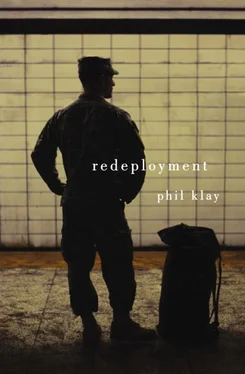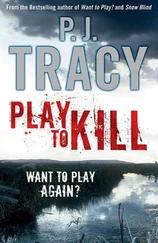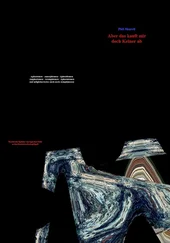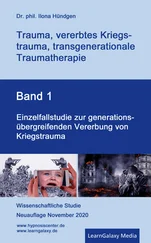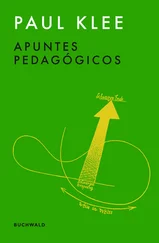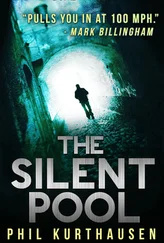“I suppose that’s fair,” I said, allowing myself to appear calmer. We were in the realm of claim and counterclaim. I felt on firmer footing.
Then Zara explained her concerns in a slightly cowed voice. The “justifiable anxieties” of her fellow Muslims and the degree to which they felt they needed to band together and “move aggressively against intolerance.” She explained herself not as though presenting her case, but as if apologizing for her overreaction. It surprised me, what my so-called sleepless nights had done to her sense of grievance. The spark she always had in class discussions was gone. When she finished, I graciously accepted her rationale for feeling threatened and said I’d moderate my words in the future if she’d do the same. The Special Assistant was all approving nods. He told us, “You two have a lot in common,” and we suffered through a little talk about how this was a teachable moment, how if we could get past our anger, we could learn so much from each other. We agreed to learn much from each other. And then he recommended, strongly, that I look into the health services that the college could offer regarding my sleepless nights. I said I would, and we were done. I’d escaped.
We walked out of the office and out of Converse Hall together, emerging into the sunlight. Zara had a dazed look about her. Around us were students heading to class or to breakfast. Since it was Amherst, there were even a few assholes playing Frisbee or, as they would call it, “throwing around the disk.” The morning had a healthy, vibrant cast to it that played oddly against what had happened.
We stood there for a moment before Zara broke the silence.
“I didn’t know,” she said.
“Know what?”
“About what you’ve been through. I’m sorry.”
And without another word she walked away, swishing her legs under her dress and dissolving into the sunlight streaming in from the east.
As she faded, so did my relief at evading punishment, leaving me with what I’d done. She had, perhaps inartfully, asked me a genuine question. I’d given her nothing but lies. And now she had whatever guilt I’d dumped on her. To leave her with that, I thought, was cowardice.
I ran toward her, cutting a diagonal across the grass, pushing past other students, and planting myself directly in her path.
“What the fuck was that?” I said.
It clearly wasn’t something she expected. The whole morning, perhaps, had been like that. Unsettling.
“What?” She shook her head. “What was what?”
“Why did you apologize to me?”
I could hear the anger in my voice and she stared back with amazement, perhaps with a little fear. But she said nothing.
“You think the big bad war broke me,” I said, “and it made me an asshole. That’s why you think I said those things. But what if I’m just an asshole?”
My breath was still coming quick—the aftermath of the run—and I was full of energy. My fists were balled tight. I wanted to pace back and forth. But she was still, sizing me up, colder every second. And then she spoke.
“Calling you a killer was out of line,” she told me, “even if you are an asshole.”
I smiled.
“You push my buttons,” I said. “Good. You’d be boring if you didn’t.”
“And I care?” she said. “Whether you think I’m boring or not?”
“Did you believe that story in there?” I said. “Poor me and my hard little war?”
She gave me a blank look. “I guess,” she said. “I don’t know. I don’t care. Whatever happened to you, I don’t care.”
“Sure you do,” I said. “You asked.”
“I’m not asking now,” she said.
We stared at each other, each of us still.
“What if I want to tell you?” I said.
She shrugged. “Why?”
I took a breath. “Because I like you,” I said. “Because you never give me any fucking respect. And because I want to level with you.” I pointed back toward Potato Head’s office in Converse Hall. “But without any of that lame bullshit.”
“This isn’t how you talk to people,” she said. “Why do you talk to people like this?”
“I know how to talk to people,” I said. “I can spin you some bullshit if you want. I’m good at that. But I don’t want to lie. At least, not to you.”
“I’m not your friend,” she said.
I put up a hand to cut her off.
“I never killed anyone,” I said. I let that hang for a moment, and once she nodded I said, “But I did see somebody die. Slowly.”
That made her still. Then I said, “I’d like to tell you about it.”
I wasn’t PsyOpsing her into it, so I didn’t know how she’d react. Or if I was PsyOpsing her, since you’re always exerting some kind of pressure even when you’re laying yourself bare, then it was the least conscious maneuvering I could do.
There was a long silence. “Why,” she said, “do you think I would want to hear about it?”
“I don’t know,” I said. But I let her see, in my face, that it was important to me. PsyOps works best when you mean it.
There was another long silence. “Fine,” she said, and motioned with her hands. “What happened?”
I looked around at the sunlight and the college students. Khakis and polos. Shorts and sandals. “Not here,” I said. “This is a sit-down conversation. I don’t just talk about this stuff to anyone.”
“I’ve got to get breakfast,” she said. “Then I’ve got class.”
I thought for a moment. “Have you ever smoked shisha ?” I asked. “You know, hookah. Muslims love that shit, right?”
She rolled her eyes and let out a short laugh. “No,” she said, and I knew she’d come.
• • •
After classes I went backto my apartment and brought the hookah to the porch. I sat down on my ratty couch, looked out at the street, and I waited.
When she arrived, ten minutes late, I already had the coals going. She’d had a full day to think it over and seemed restless and a little suspicious, settling herself in the chair with the rigid posture of someone who doesn’t intend to stay long.
I asked her if she wanted rose- or apple-flavored tobacco, and when she said rose, I told her apple was better and she rolled her eyes and we went with that. I told her the rules of hookah—no pointing the mouthpiece at anyone, no left hand—and as I got out the tobacco she said, “So. You want to tell me a story.”
I said, “Yes. And you want to hear it.”
She smiled. “Possession of a hookah is against the student honor code,” she said. “It’s considered ‘drug paraphernalia.’”
“Clearly,” I said, “I don’t follow the student honor code.”
The hookah was ready. I pulled on it a couple times and held the smoke in my lungs before letting it out. It had a sweet, smooth flavor and feel, and it relaxed me.
I told her, “You know, technically I didn’t even watch him die. It just felt that way,” and she didn’t say anything in response. She just looked at me, so I passed her the pipe and she took a pull.
“It’s sweet,” she said, breathing the smoke out with her words. She pulled again and let a slow curl ripple over her lips. Then she put the hose back down, pointed away from both of us.
I didn’t know how to start, which was unusual. I’d told the story before. In bars, most times, and then it was all about the money shot, the death. But that was one death among hundreds of thousands. Meaningless to all but a few people. Me. That child’s family. Perhaps, I thought, Zara.
I needed to ground myself. I began, as you do in the military, with geographic orientation. I told her about East Manhattan, which was a section of Fallujah north of Highway 10. A few weeks earlier, Marines from 3/4 had swept through the neighborhood, jumping roof to roof and clearing houses while thousands of civilians fled the city and the disorganized resistance tried to come up with some kind of plan. A lot of the fighting happened on Easter Sunday, which everybody thought was significant, even me. It was 2004, the third time in my life I could remember American Easter falling on the same day as Coptic Easter, and I spent that day watching a city explode.
Читать дальше
